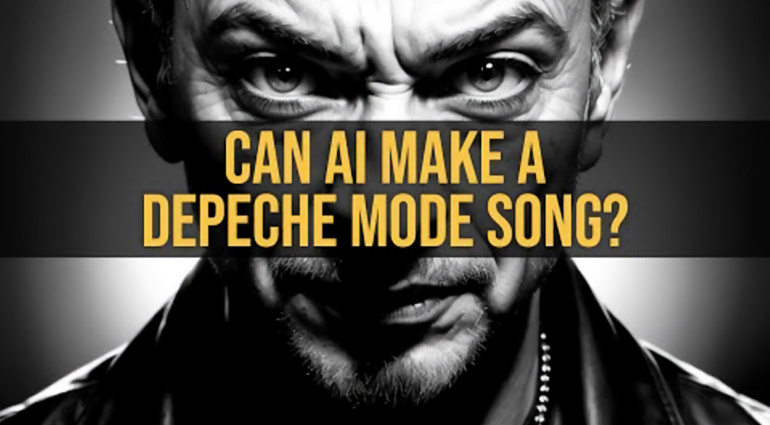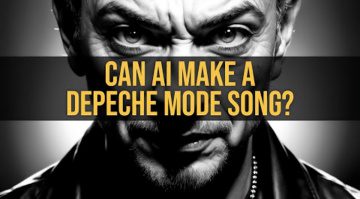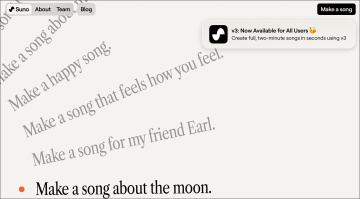Is Udio a better AI music generator than Suno? And is it even legal?
Udio's influence on the music industry: an AI as songwriter?
AI music generator Suno equally wowed and scared music producers with its recent update. Many of the songs it generates from simple text prompts almost rival commercial productions in quality. Now, there is a challenger: Udio! Just as it happened with Suno, however, Udio almost immediately faced criticism and backlash for supposed copyright infringement. That is, not for reproducing songs, but using music from artists for its training data without asking for permission or financially compensating said artists. Are we at the Napster moment of AI music?
Discussed by fans: AI creates Depeche Mode song on demand
Udio only launched a couple of days ago. Many users were excited by the quality and variety of its output. Some examples were close to or even surpassed results from Suno, the other AI music generator that has been (literally) making waves. But for Udio, potential copyright issues almost immediately popped up.
For instance, a song created that mimics the style of Depeche Mode is causing quite a stir among fans. It shows the growing capabilities of AI. This piece has caused great amazement, especially among the less initiated listeners, as the differences to actual Depeche Mode songs are almost unrecognizable. Only when you listen closely do you realize the lack of “humanity”, but Dave Gahan’s voice is pretty much there.
Andrea Foyer, a YouTuber, used Udio for this experiment by entering specific instructions to capture the band’s characteristic sound. Sure, the platform may not accept direct attribution to real bands and singers. But there are quite a few tweets and videos showing how you can get very close by using tags. If you research the tags a song has on Spotify and enter these on Udio, the AI music generator outputs results like the aforementioned. It’s not a Depeche Mode song, but everything, even the voice, is there. Check out this song on Udio that uses tags used in songs by Steven Wilson – it’s eerily similar.
Is the future of music in Udio? AI-generated songs that inspire?
The countless reactions to the song range from fascination to skepticism, leading to intense conversations in discussion forums and social media. Every week, this phenomenon raises more and more critical questions about the role of AI in future music production. Should artists rely on such technologies to develop and perfect their music?
Is the musician of the future a talented “prompter” who can’t play any instruments – a prompt DJ? For now, all of these tools seem to be able to only generate fully fleshed-out songs – which is good if you just want that. However, for any professional, there would need to be much more control over the outcome, which is a similar issue to AI graphics.
For instance, you can’t “tell” Udio or Suno to replace one of the instruments in a song, a specific bpm, or key, let alone the instrumentation or the arrangement. And while both Udio and Suno seem to take the road of “move fast and break things,” it remains to be seen how labels, publishers, and, first and foremost, artists with copywritten works will react to these developments.
Further information about Udio
- Website of Udio
- More about Udio
- More about AI and music
4 responses to “Is Udio a better AI music generator than Suno? And is it even legal?”

 4,0 / 5,0 |
4,0 / 5,0 | 







No and no.
Thank you for your attention.
(also “almost rival commercial quality” ? gasp. These tools remain extremely limited and have VERY obvious artefacts (which won’t disappear in the future: AI has already peaked). )
i hope you’re right.
I have been a Depeche Mode fan and musician for 30 years. This song did better than some of the songs on DM’s new album. It’s sad, but that doesn’t make it true… 🙁
Musicians need to be aware things are changing. It’s the same with painters… just because AI does an image in their style doesnt mean they are copied. Same for musicians, you dont own a chord and you dont own a style.